Concawe Review
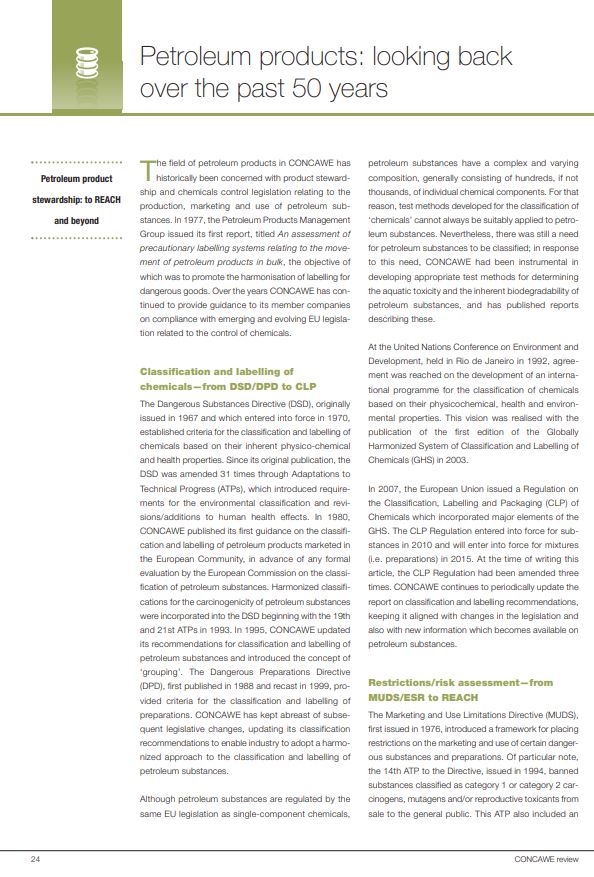
Concawe Reviews
Petroleum products: looking back over the past 50 years
The field of petroleum products in CONCAWE has historically been concerned with product stewardship and chemicals control legislation relating to the production, marketing and use of petroleum subs...
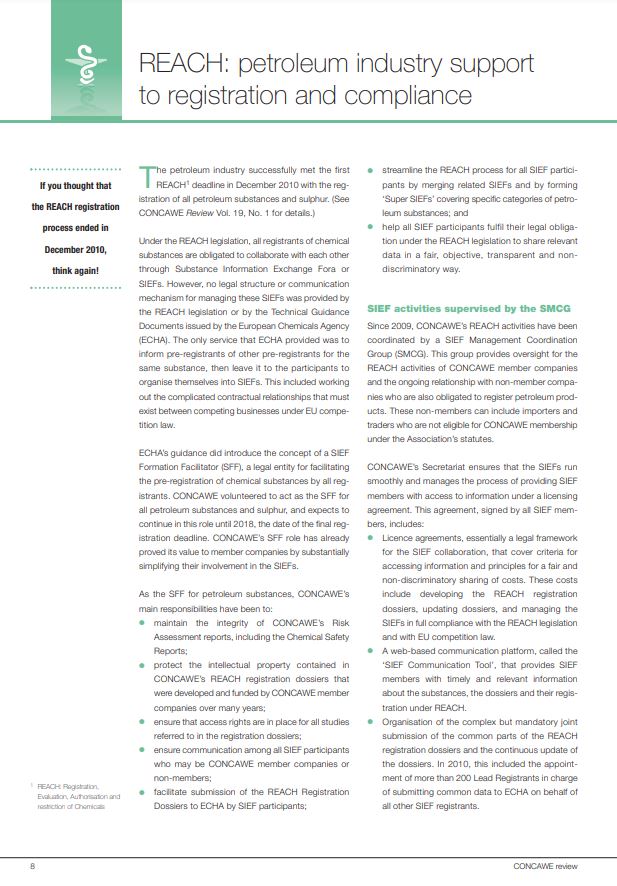
Concawe Reviews
REACH: petroleum industry support to registration and compliance
The petroleum industry successfully met the first REACH deadline in December 2010 with the registration of all petroleum substances and sulphur....
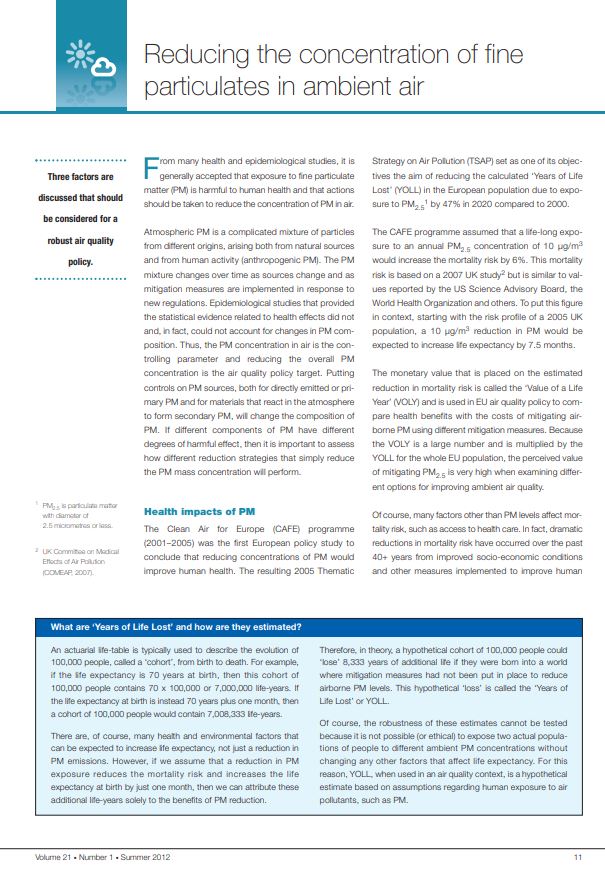
Concawe Reviews
Reducing the concentration of fine particulates in ambient air
From many health and epidemiological studies, it is generally accepted that exposure to fine particulate matter (PM) is harmful to human health and that actions should be taken to reduce the concentra...
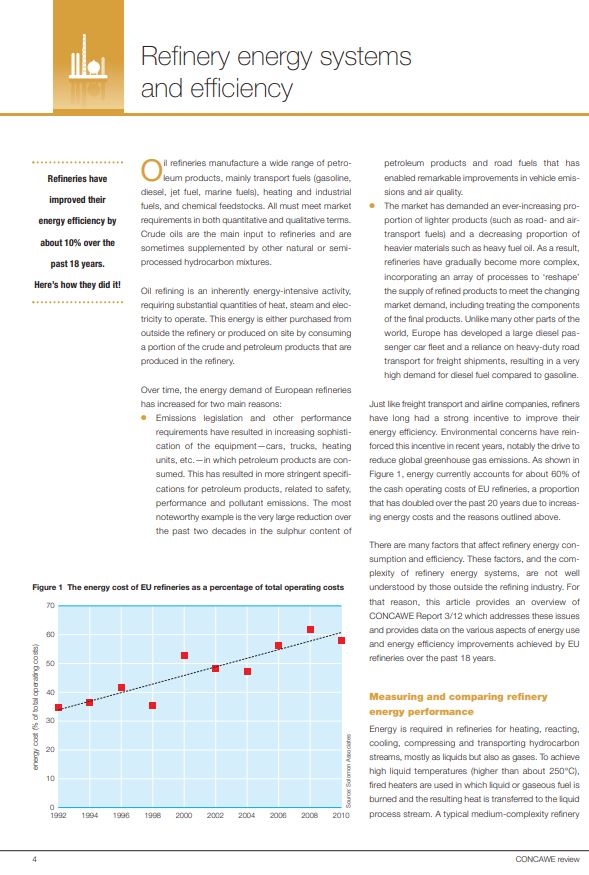
Concawe Reviews
Refinery energy systems and efficiency
Oil refineries manufacture a wide range of petroleum products, mainly transport fuels (gasoline, diesel, jet fuel, marine fuels), heating and industrial fuels, and chemical feedstocks.
All must...
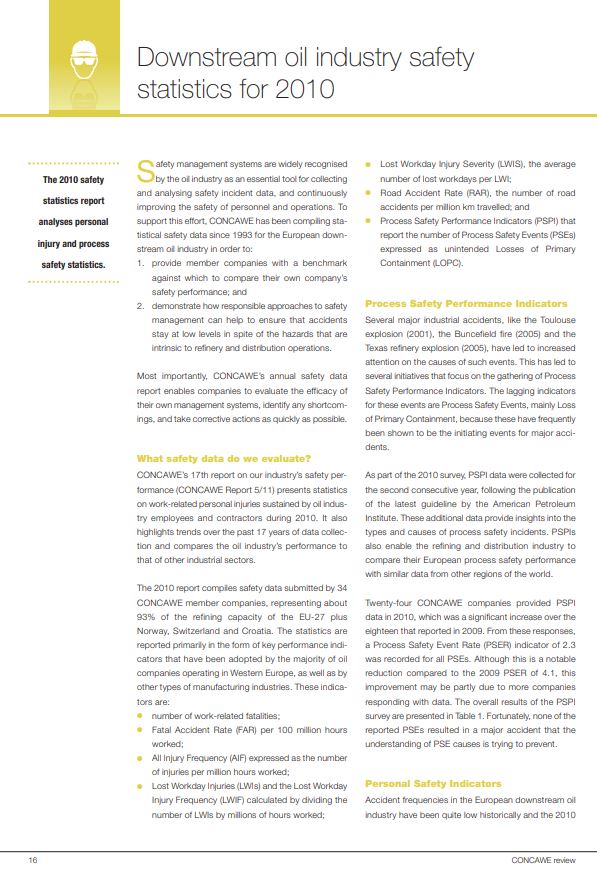
Concawe Reviews
Downstream oil industry safety statistics for 2010
The 2010 safety statistics report analyses personal injury and process safety statistics. Most importantly, CONCAWE’s annual safety data report enables companies to evaluate the efficacy of their ow...
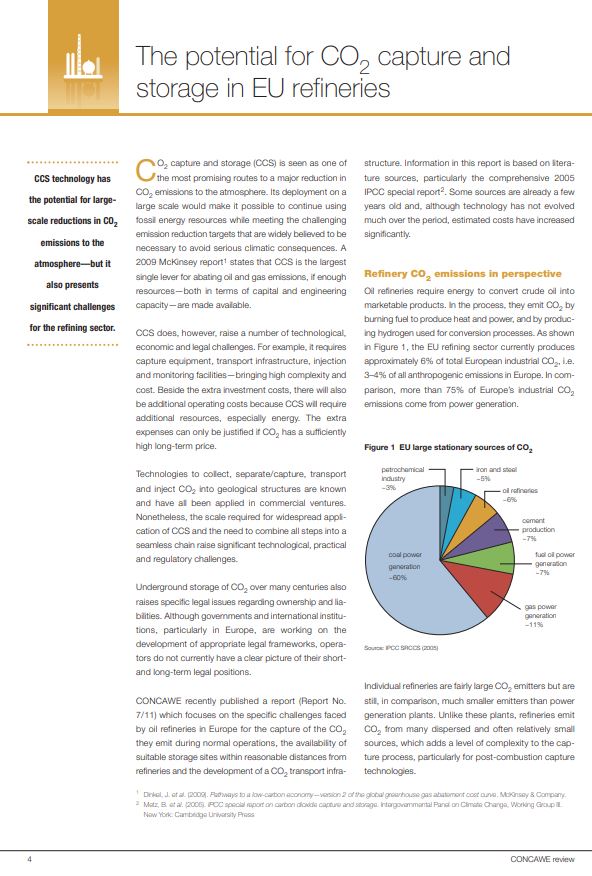
Concawe Reviews
The potential for CO2 capture and storage in EU refineries
CO2 capture and storage (CCS) are seen as one of the most promising routes to a major reduction in CO2 emissions to the atmosphere. Its deployment on a large scale would make it possible to continue u...
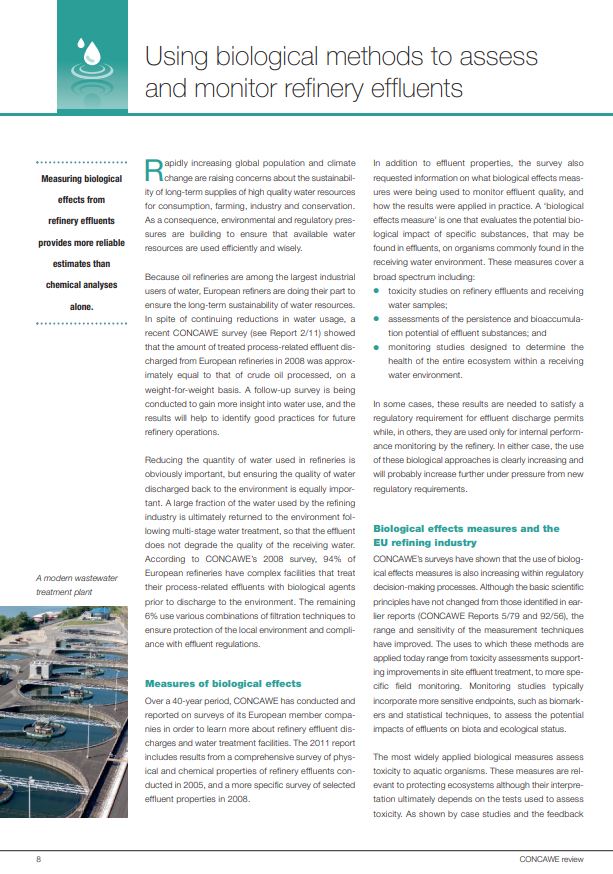
Concawe Reviews
Using biological methods to assess and monitor refinery effluents
Rapidly increasing global population and climate change are raising concerns about the sustainability of long-term supplies of high quality water resources for consumption, farming, industry and co...

Concawe Reviews
CONCAWE Review – Autumn 2011
Volume 20, Number 2: In 2011, CONCAWE, with the support of its member companies, successfully completed its best year ever in terms of research project expenditures (excluding REACH).
We are also o...
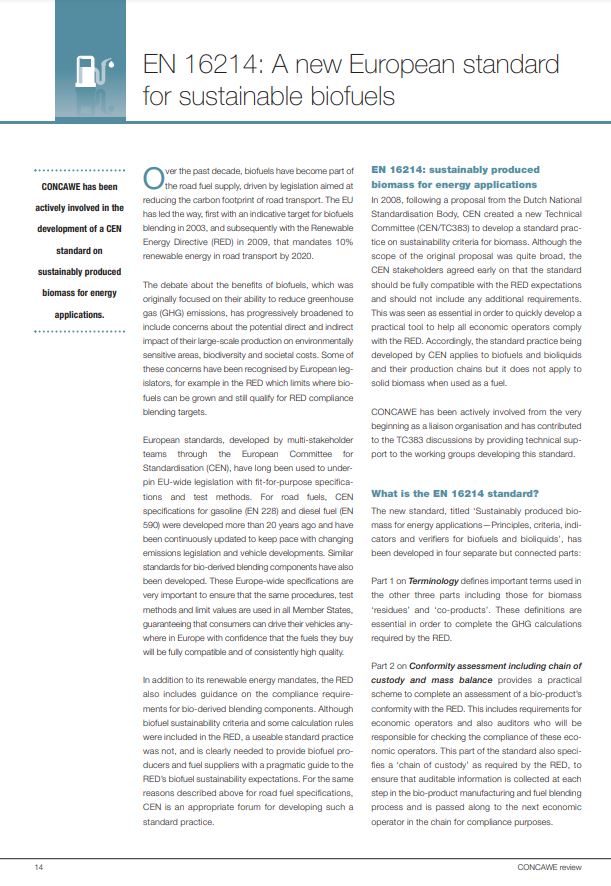
Concawe Reviews
EN 16214: A new European standard for sustainable biofuels
Over the past decade, biofuels have become part of the road fuel supply, driven by legislation aimed at reducing the carbon footprint of road transport.
The EU has led the way, first with an ind...
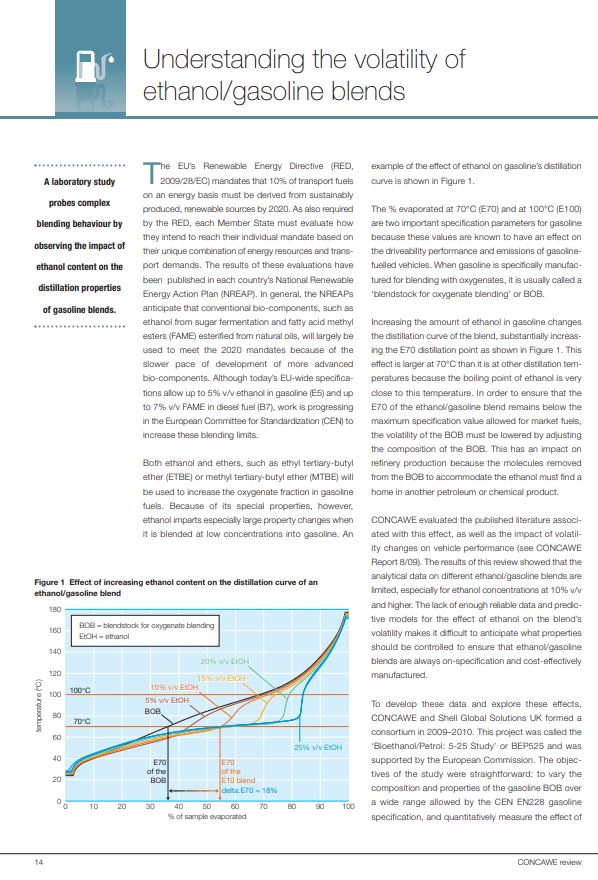
Concawe Reviews
Gasoline volatility and vehicle performance
Passenger cars in many parts of the world are now routinely operating on blends of oxygenated molecules and gasoline. Both ethanol and ethers, such as ethyl tertiary-butyl ether (ETBE), are being u...
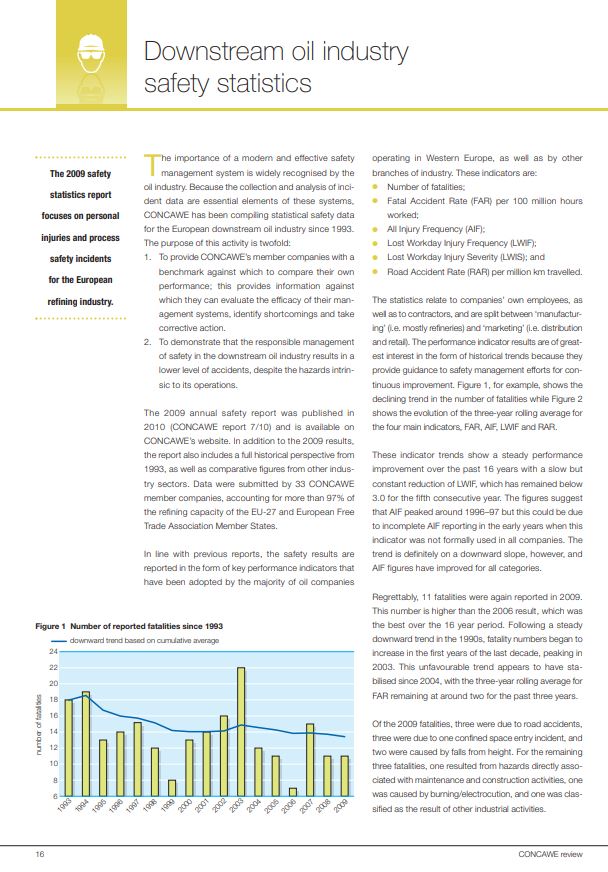
Concawe Reviews
Downstream oil industry safety statistics
The 2009 annual safety report was published in 2010 (CONCAWE report 7/10) and is available on CONCAWE’s website. In addition to the 2009 results, the report also includes a full historical perspe...
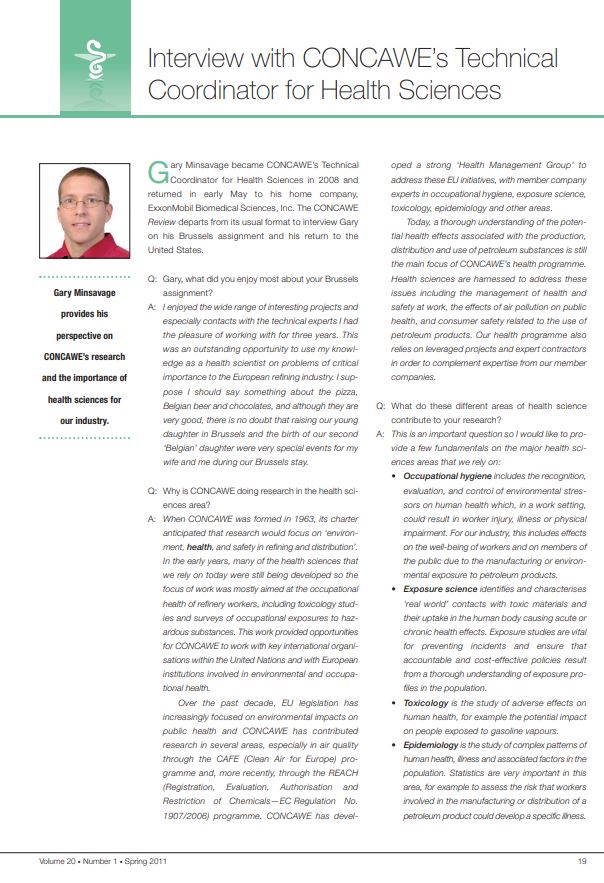
Concawe Reviews
Interview with CONCAWE’s Technical Coordinator for Health Sciences
Gary Minsavage became CONCAWE’s Technical Coordinator for Health Sciences in 2008 and returned in early May to his home company, ExxonMobil Biomedical Sciences, Inc.
The CONCAWE Review depart...
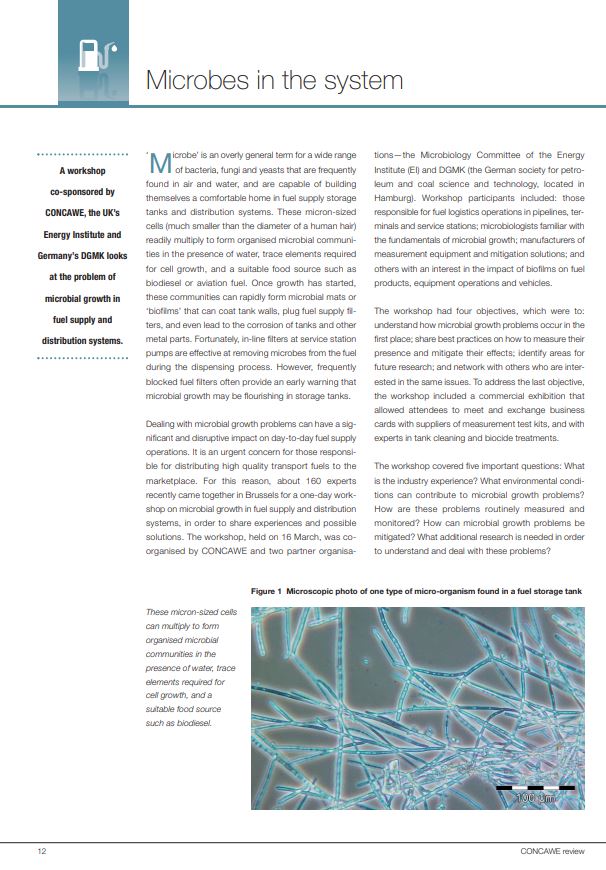
Concawe Reviews
Microbes in the system
‘Microbe’ is an overly general term for a wide range of bacteria, fungi and yeasts that are frequently found in air and water, and are capable of building themselves a comfortable home in fuel...
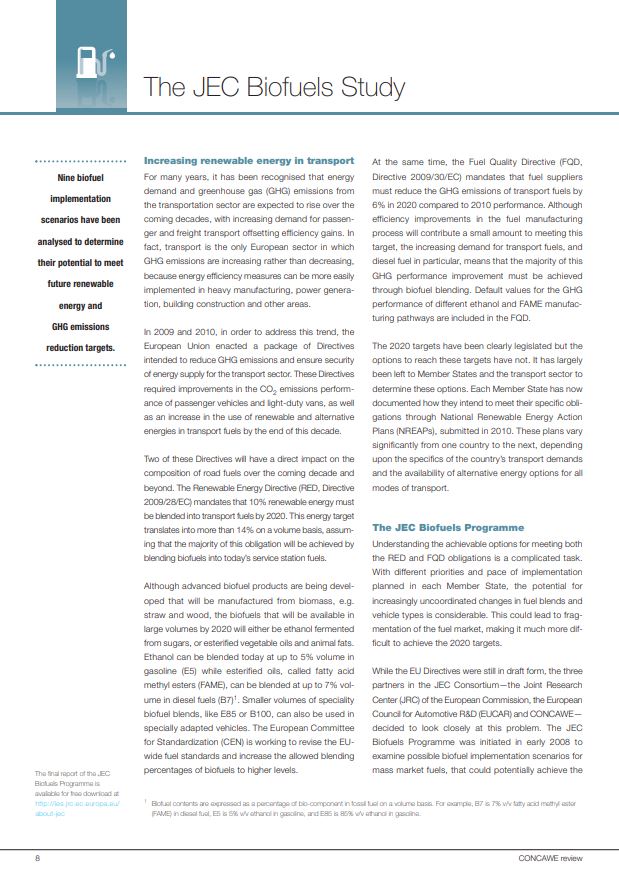
Concawe Reviews
The JEC Biofuels Study
For many years, it has been recognised that energy demand and greenhouse gas (GHG) emissions from the transportation sector are expected to rise over the coming decades, with increasing demand for...
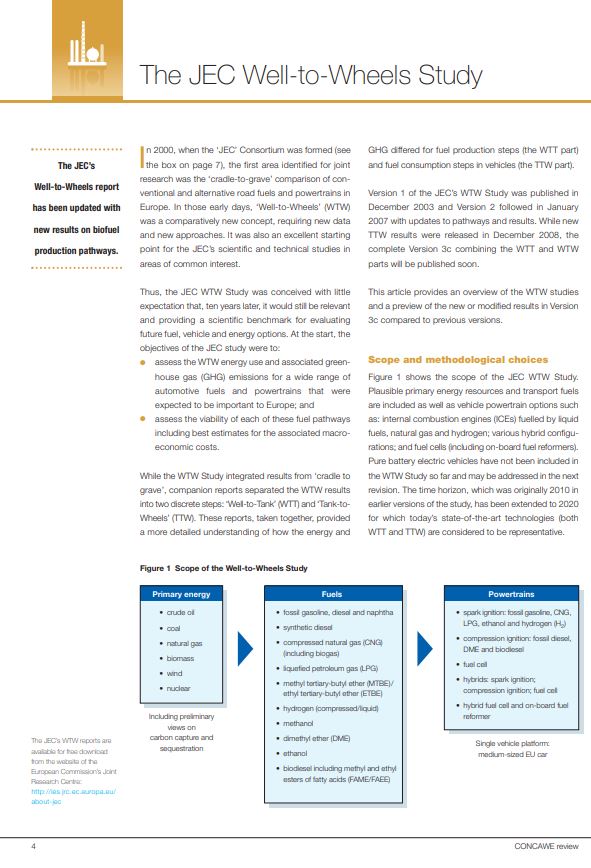
Concawe Reviews
The JEC Well-to-Wheels Study
In 2000, when the ‘JEC’ Consortium was formed (see the box on page 7), the first area identified for joint research was the ‘cradle-to-grave’ comparison of conventional and alternative road...
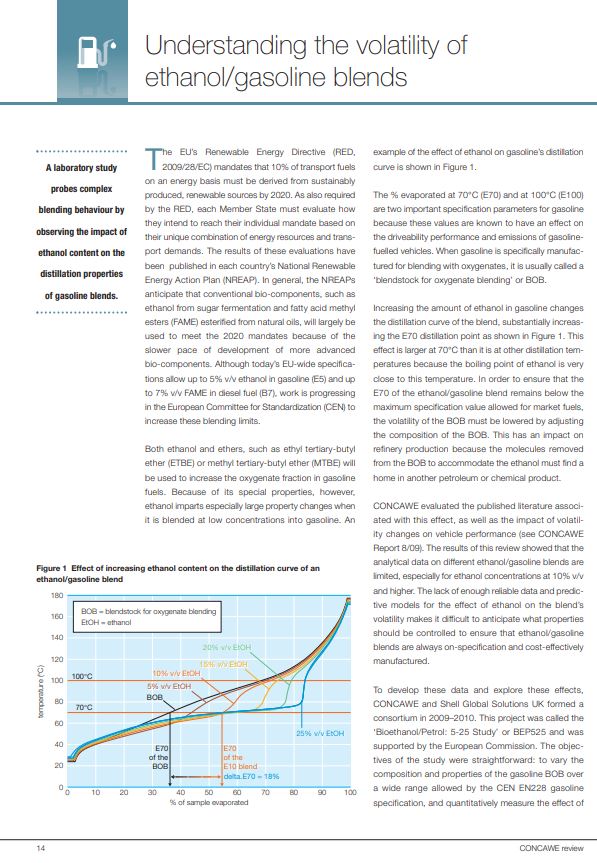
Concawe Reviews
Understanding the volatility of ethanol/gasoline blends
The EU’s Renewable Energy Directive (RED, 2009/28/EC) mandates that 10% of transport fuels on an energy basis must be derived from sustainably produced, renewable sources by 2020. As also require...

Concawe Reviews
CONCAWE Review • Spring 2011
Volume 20, Number 1: In 2010, CONCAWE and its Member Companies successfully completed the first phase of REACH (Registration, Evaluation, Authorisation and Restriction of Chemicals). CONCAWE was respo...
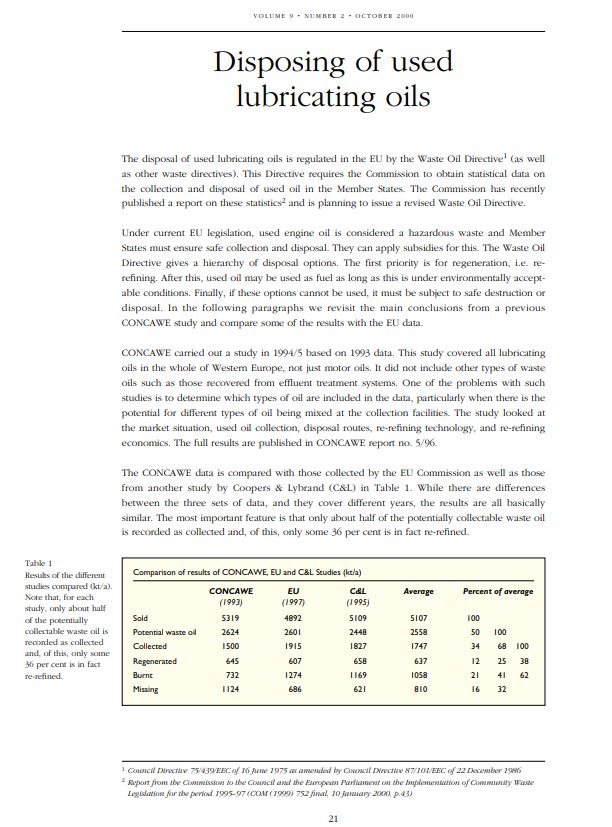
Concawe Reviews
Disposing of used lubricating oils
The disposal of used lubricating oils is regulated in the EU by the Waste Oil Directive1 (as well as other waste directives). This Directive requires the Commission to obtain statistical data on the c...
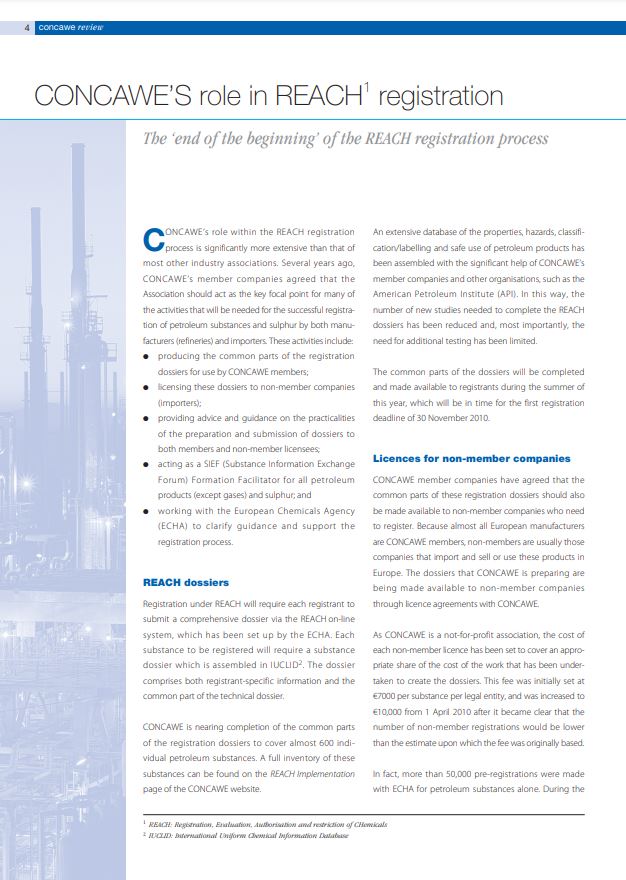
Concawe Reviews
CONCAWE’S role in REACH registration
CONCAWE’s role within the REACH registration process is significantly more extensive than that of most other industry associations.
Several years ago, CONCAWE’s member companies agreed that...
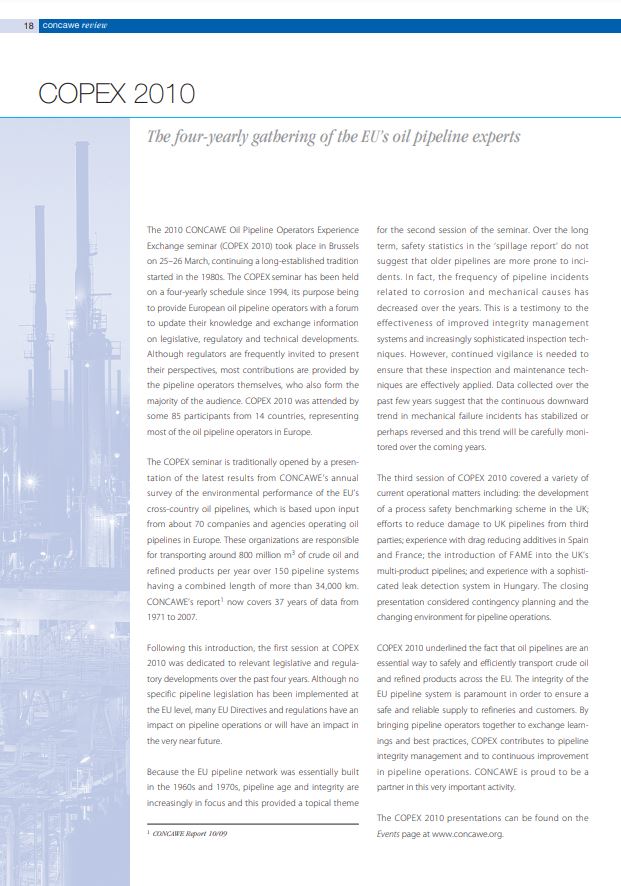
Concawe Reviews
COPEX 2010
The 2010 CONCAWE Oil Pipeline Operators Experience Exchange seminar (COPEX 2010) took place in Brusselson 25–26 March, continuing a long-established tradition started in the 1980s. The COPEX semin...
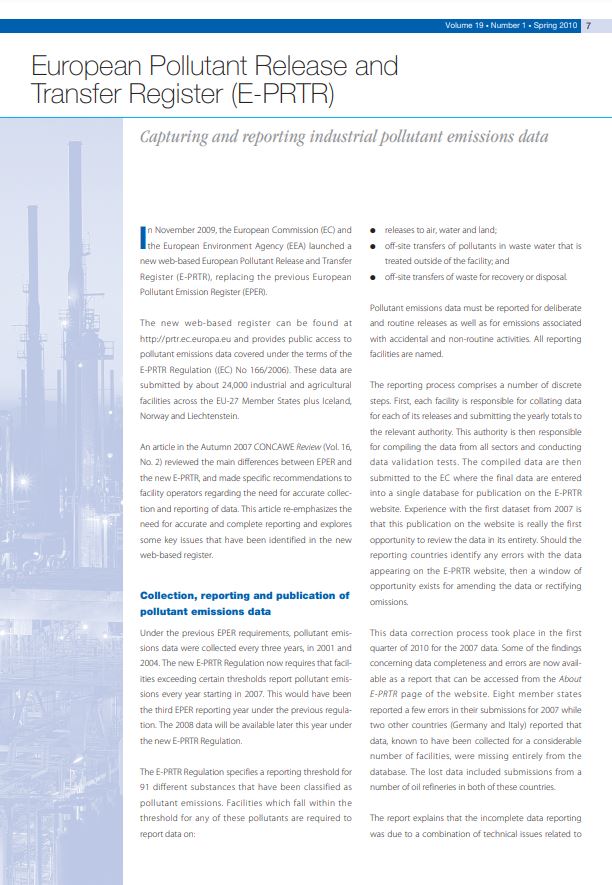
Concawe Reviews
European Pollutant Release and Transfer Register (E-PRTR)
In November 2009, the European Commission (EC) and the European Environment Agency (EEA) launched a new web-based European Pollutant Release and Transfer Register (E-PRTR), replacing the previous E...
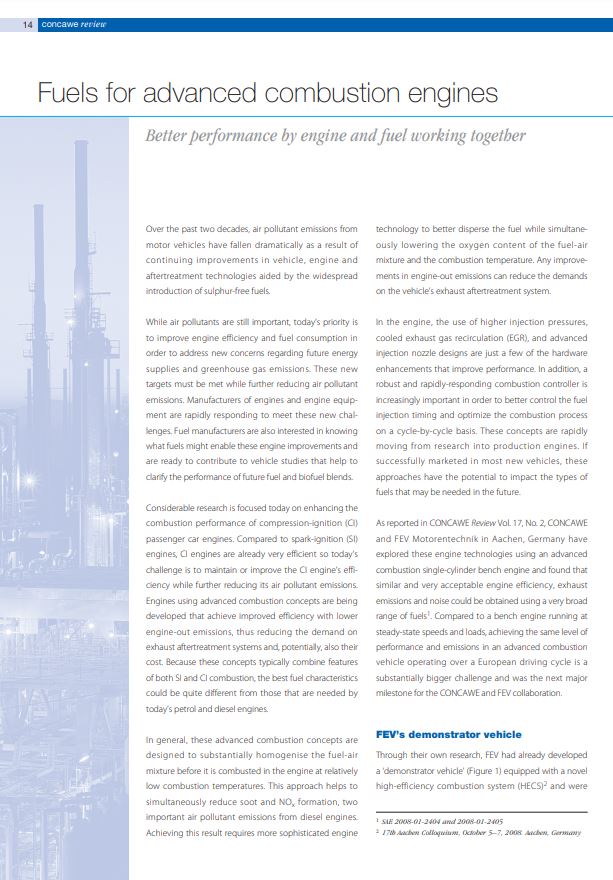
Concawe Reviews
Fuels for advanced combustion engines
Over the past two decades, air pollutant emissions from motor vehicles have fallen dramatically as a result of continuing improvements in vehicle, engine and after treatment technologies aided by the...
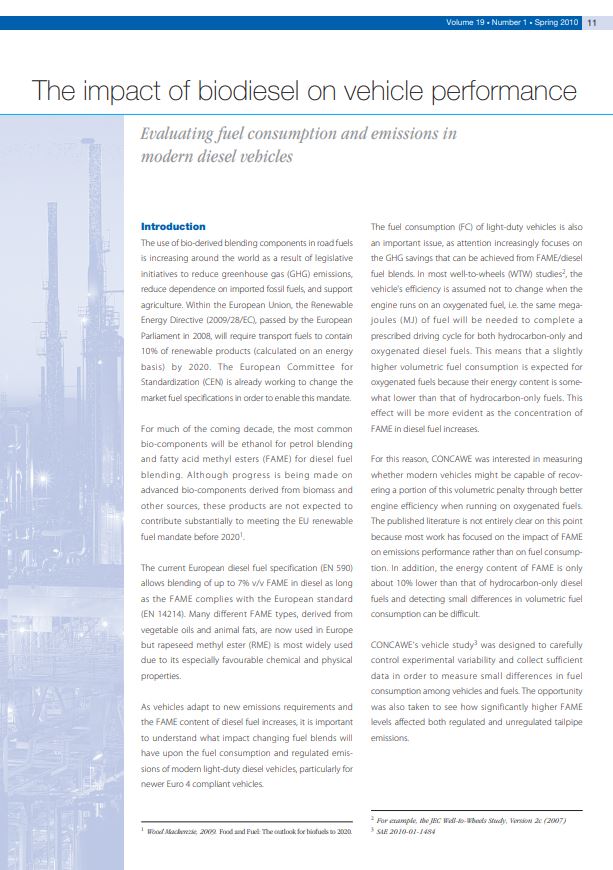
Concawe Reviews
The impact of biodiesel on vehicle performance
The use of bio-derived blending components in road fuels is increasing around the world as a result of legislative initiatives to reduce greenhouse gas (GHG) emissions, reduce dependence on imported f...

Concawe Reviews
CONCAWE Review – Spring 2010
Volume 19 • Number 1: Content of this Concawe Review:
CONCAWE’S Role in REACH Registration. The ‘end of the beginning’ of the REACH registration process;
European Pollutant Release and...